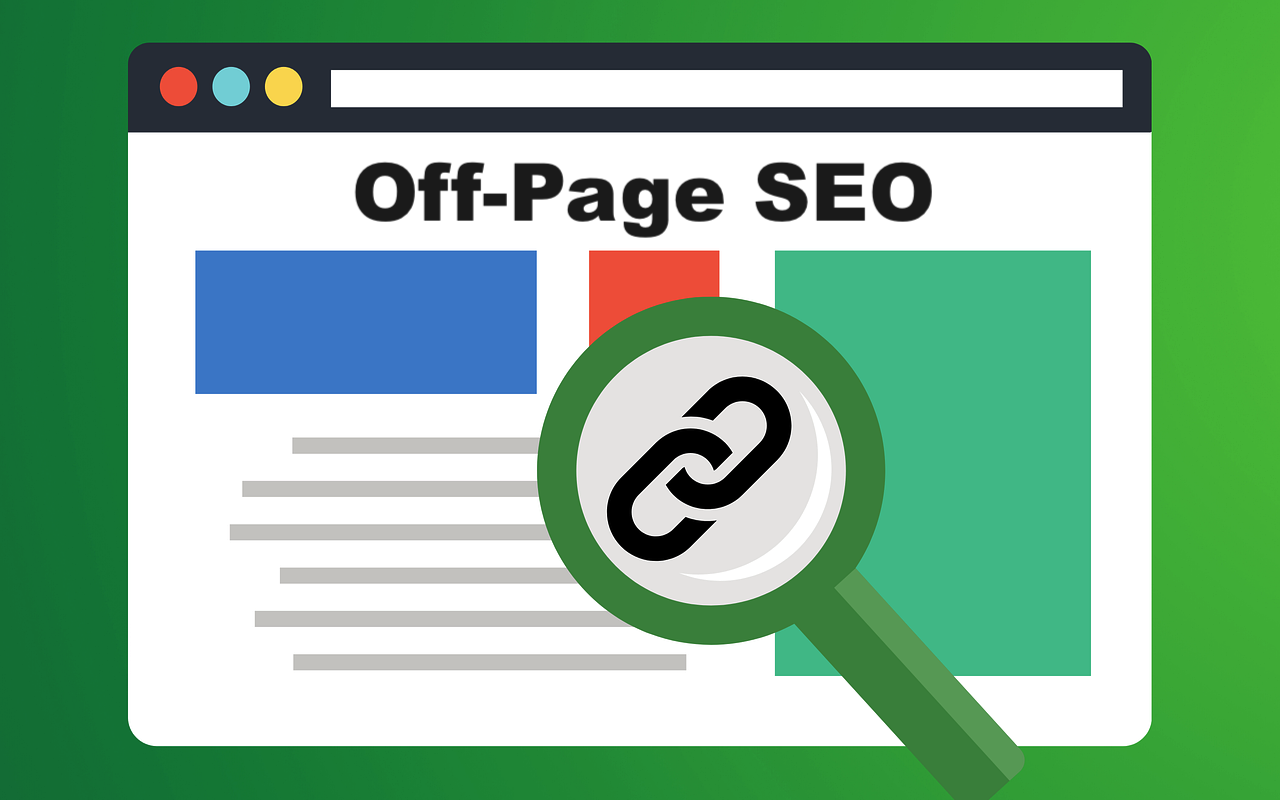
Off-page SEO refers to all the activities conducted outside your website to improve its authority, visibility, and reputation. Unlike on-page SEO, which focuses on optimizing your website’s content and structure, off-page SEO aims to build credibility through external factors. It plays a vital role in improving search engine rankings by signaling trustworthiness and relevance to search engines like Google.
Key Components of Off-Page SEO
1. Link Building
Backlinks are the cornerstone of off-page SEO. Earning high-quality backlinks from authoritative and relevant websites helps search engines view your site as trustworthy. Prioritize building natural links, avoid spammy backlinks, and focus on creating diverse links from multiple domains.
2. Brand Mentions
Mentions of your brand, whether linked or unlinked, can positively influence your SEO. Promoting your business through online PR campaigns and social media can boost your visibility and reputation.
3. Social Signals
Engagement on social media platforms indirectly affects your SEO. Shares, likes, and comments on platforms like Facebook, Twitter, and LinkedIn can drive referral traffic and enhance brand visibility.
4. Local SEO
For businesses with a physical presence, managing local SEO is crucial. Maintain accurate business listings on platforms like Google My Business, encourage customer reviews, and ensure consistent citations across directories.
5. Influencer Marketing
Partnering with influencers in your niche can amplify your content and attract valuable backlinks. Influencers can help you tap into a targeted audience and boost your website’s credibility.
Strategies to Improve Off-Page SEO
1. Link Building Techniques
Effective link-building strategies include guest blogging on authoritative sites, fixing broken links, and running outreach campaigns to earn backlinks. Prioritize quality over quantity to avoid penalties.
2. Content Marketing
Creating shareable content like infographics, videos, and in-depth guides can naturally attract backlinks. Focus on content that provides value and aligns with your audience's interests.
3. Social Media Marketing
Promote your content across social platforms to increase reach and engagement. Social media activity not only drives traffic but also enhances brand visibility, leading to more backlinks.
4. Online Reputation Management
Encourage positive reviews on platforms like Yelp, Trustpilot, and Google Reviews. Responding professionally to negative feedback helps maintain trust and credibility.
5. Participating in Communities
Engage in niche-specific forums like Reddit or Quora by answering questions and providing value. This positions your brand as an authority and can lead to natural backlinks.
6. Collaborations and Partnerships
Partner with complementary businesses for co-marketing efforts, such as webinars, content collaborations, or cross-promotions, to expand your audience and earn backlinks.
On-Page SEO vs. Off-Page SEO: Understanding the Difference
On-Page SEO focuses on optimizing internal elements of your website, such as content, structure, and technical aspects.
Off-Page SEO involves external activities like link building, social media engagement, and reputation management to improve website authority.
On-page SEO is fully within your control, whereas off-page SEO depends on external factors and outreach. On-page SEO enhances relevance and usability, while off-page SEO builds trust and authority.
On-page SEO ensures your site is optimized for users and search engines, while off-page SEO boosts your website’s reputation and authority. Together, they create a balanced SEO strategy.
Tools for Off-Page SEO
Free Tools:
- Google Alerts: Track brand mentions and monitor your online presence.
- Ubersuggest: Analyze backlinks and discover link-building opportunities.
- HARO (Help A Reporter Out): Connect with journalists to earn backlinks through media coverage.
Paid Tools:
- Ahrefs: Offers backlink analysis, competitor research and website traffic checker tools.
- SEMrush: Link-building tools, domain analytics, and content ideas.
- Moz: Offers tools like Link Explorer for backlink analysis, Domain Authority tracking, and competitive research to improve your off-page SEO strategy.
- BuzzSumo: Identify trending content and find influencers in your niche.
Common Mistakes to Avoid
- Using low-quality or spammy backlinks that may lead to penalties.
- Focusing on link quantity over quality and relevance.
- Neglecting local SEO efforts for brick-and-mortar businesses.
- Ignoring toxic backlinks and failing to disavow them.
Measuring the Success of Off-Page SEO
Track the effectiveness of your off-page SEO efforts using these key metrics:
- Domain Authority (DA) or Domain Rating (DR): Indicates the overall authority of your website.
- Referring Domains: Measure the number of unique domains linking to your site.
- Organic Traffic Growth: Monitor traffic from search engines.
- Social Media Engagement: Analyze shares, likes, and comments.
- Local Search Rankings: Evaluate your performance in local SEO results.
Conclusion
Off-page SEO is essential for building your website’s authority, improving search engine rankings, and driving organic traffic. By focusing on link building, social signals, and reputation management, you can enhance your website’s visibility and credibility. Remember to combine off-page efforts with on-page SEO for a balanced, comprehensive strategy that ensures long-term success. Start implementing these strategies today to take your SEO to the next level.
Share this post
Leave a comment
All comments are moderated. Spammy and bot submitted comments are deleted. Please submit the comments that are helpful to others, and we'll approve your comments. A comment that includes outbound link will only be approved if the content is relevant to the topic, and has some value to our readers.

Comments (0)
No comment